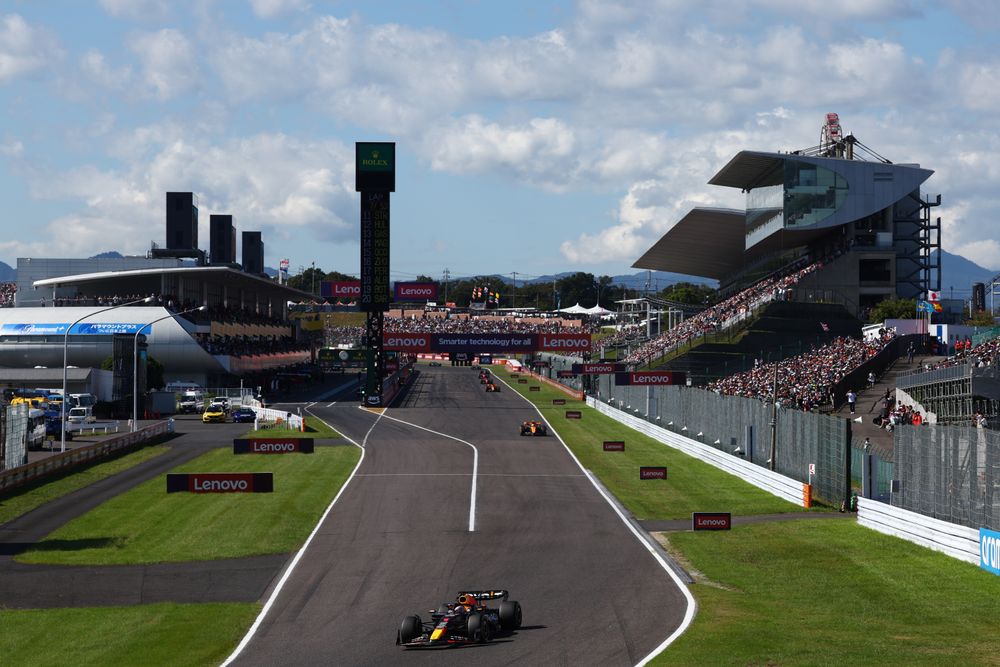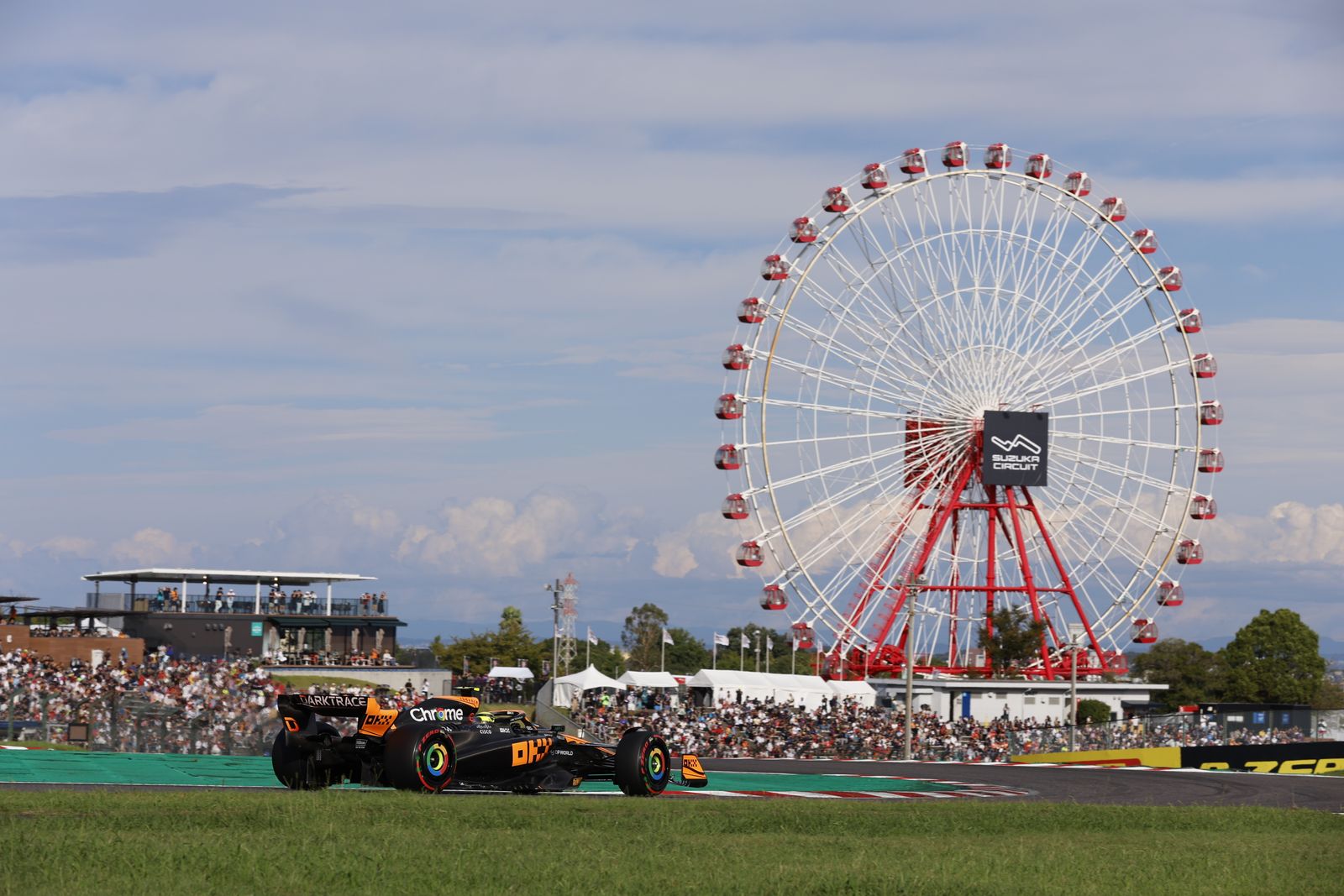Up Next

Yes, Formula 1 fell off, and yes, it is because your favourite driver and/or team aren't getting the results and/or treatment they deserve. We have fact-checked it, and it is 100% true.
OK, yes, "sarcasm is the lowest form of wit". Guilty as charged. But all that might well be true. It could at least be part-true. And it's certainly a more revealing position on the question than what I can actually offer - which is: is Formula 1 in worrying decline? It's way too early to tell; and what's causing any decline? A multitude of factors. Those answers might as well be a pair of shrug emojis.
A report released by UK marketing and analytics company Buzz Radar did offer two concrete answers. F1 disputes these - but what can't be disputed is that the 'white paper' being published has been hugely insightful in an indirect way. In that the conclusion reached by Buzz Radar is one that clearly resonated with a lot of people, to the point of effectively making it open season on F1's shortcomings, kicking off its version of Festivus - the Seinfeld-popularised holiday of the "airing of grievances".
Is it something for F1 to take note of? Certainly. Is it something for F1 to hugely worry about? I wouldn't be so sure. The only meaningful conclusion I'd be definitively willing to draw is an 'emotional truth' rather than anything data-originated - the truth that maybe it'd be better for F1 fans if the championship was indeed feeling a decline in reach and engagement as a consequence of its current product.
The buzz-making report
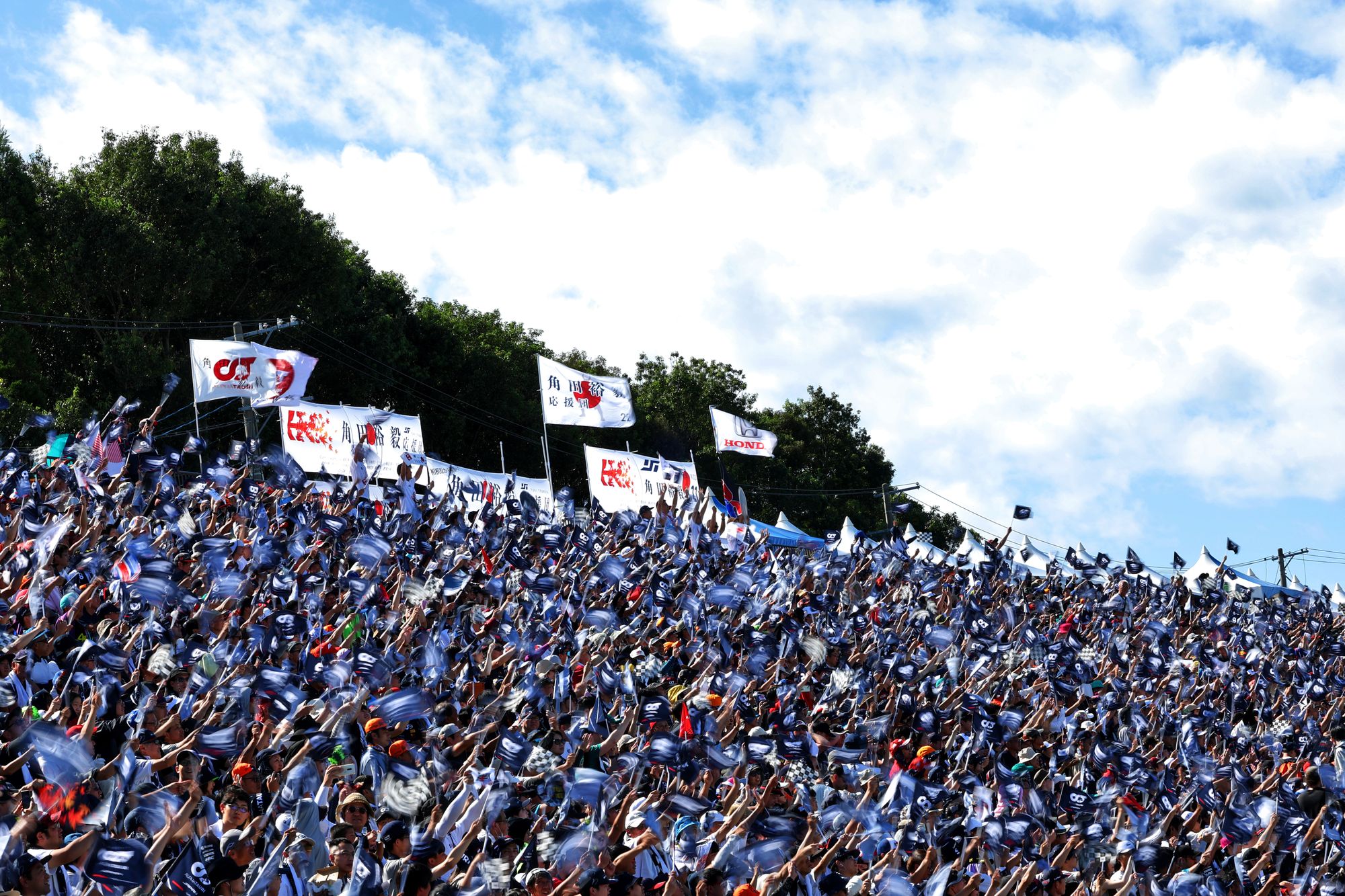
The report by Buzz Radar, a High Wycombe, UK-registered data analysis company but also one made up of "huge motorsport fans", is based around a central thesis of 'peak F1' having been reached.
"Using AI pattern detection and predictive intelligence, our team can determine, with a strong degree of confidence, that 2022 was peak in F1 popularity for the foreseeable future, and we are now on a downward trajectory," its report says.
"We predict a steady decline in F1 interest online until the domination of Max Verstappen and Red Bull ends, and competition closes up.
"Our predictive model estimates that F1 could lose as much as 50% of the new audience it has gained by 2024 if the same driver continues to dominate the sport."
These are bold claims, some of them particularly so, with that 50% estimation a particular eyebrow-raiser for this author - ultimately a layman in this topic with only a basic statistical analysis education.
The evidence provided by Buzz Radar is what it describes as "significant drops in the overall mentions of F1" and "dismal numbers of new followers of high-profile accounts" - though the specific figures it cites are a comparison of January-May 2022 and January-May 2023, which feels worthy of a sample size expansion given the F1 season starts in March.
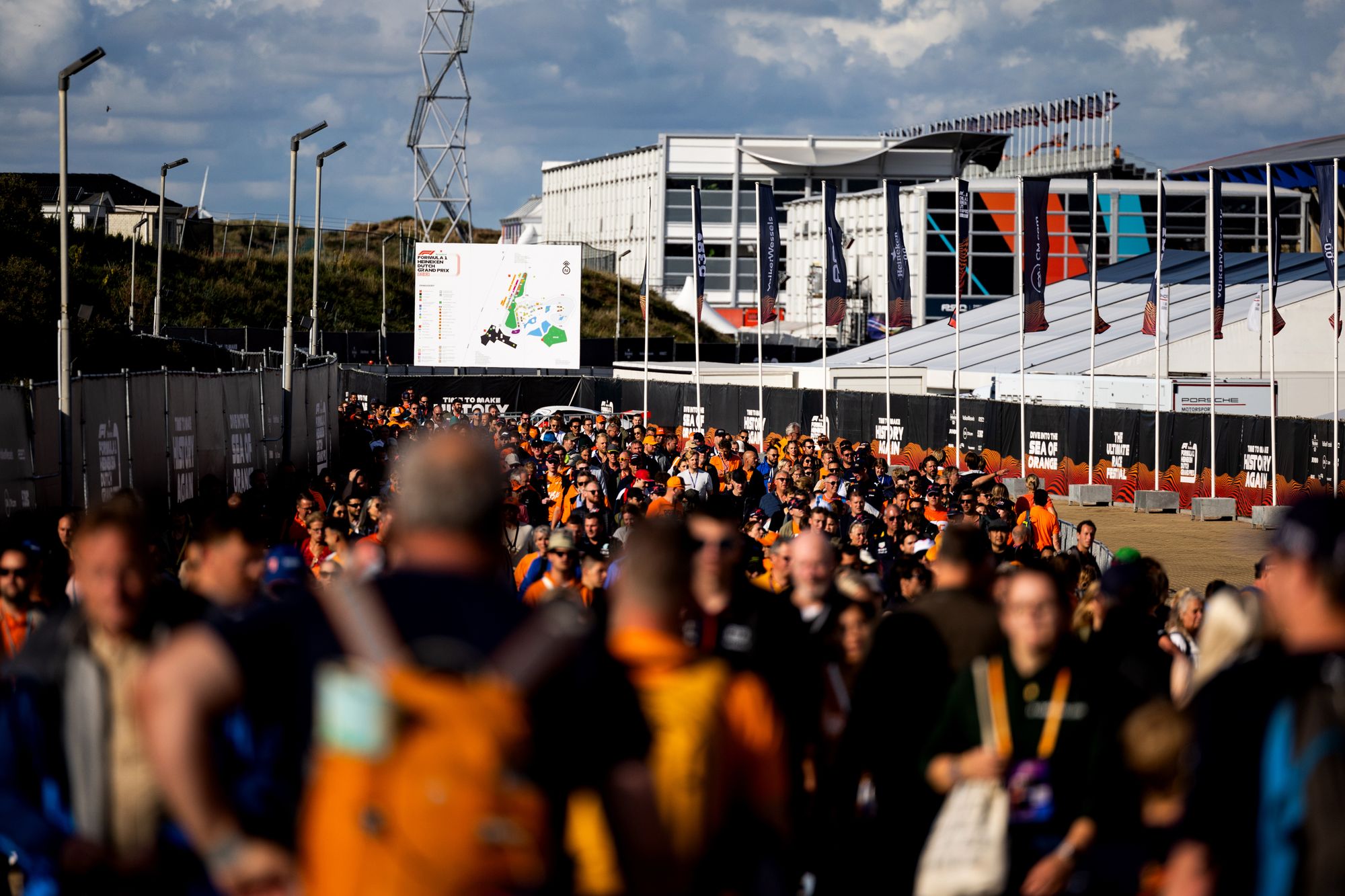
The report also uses online conversation analysis to assert that fans are a lot more bored by F1 this year, but that conversation has grown a lot more "passionate" in terms of tone. Both of these seem intuitively obvious if you've spent even a single second watching F1 in 2023 or discussing it online, but of course even intuitively obvious things usually warrant data to back them up.
The Race understands that F1 believes its own findings regarding both social media growth and engagement are in stark contrast to Buzz Radar's when it comes to both follower growth (a more than seven-fold discrepancy, its numbers suggest) and engagement on F1's official channels.
Considering the metrics that used to be the end-all, be-all - ie the television audience - are for F1 somewhat obfuscated by the territory-by-territory splits between pay-to-view and free-to-air (with most of the headlines generated by F1's USA TV audience, which seems healthy enough compared to 2022) and considering also the age we live in, online reach and engagement are of course a key battleground to determine a championship's health, but also something that can be measured in a whole variety of ways and can depend on a variety of outside factors. Factors like, let's say, a major social media network getting a new owner and becoming borderline unusable virtually overnight.
So at this point it's a "they said, they said". Maybe Buzz Radar is right, maybe F1 is, maybe both are - but just have different perspectives on what exact metrics, with what caveats and approaches to data clean-up, are meaningful.
A follow-up from Buzz Radar, offering some more clarity on its methodology and its explanation for why it believes F1's response "is reflecting a different metric to the one we're using", was issued a day after this column's original publication.
The problem with F1's 'product'
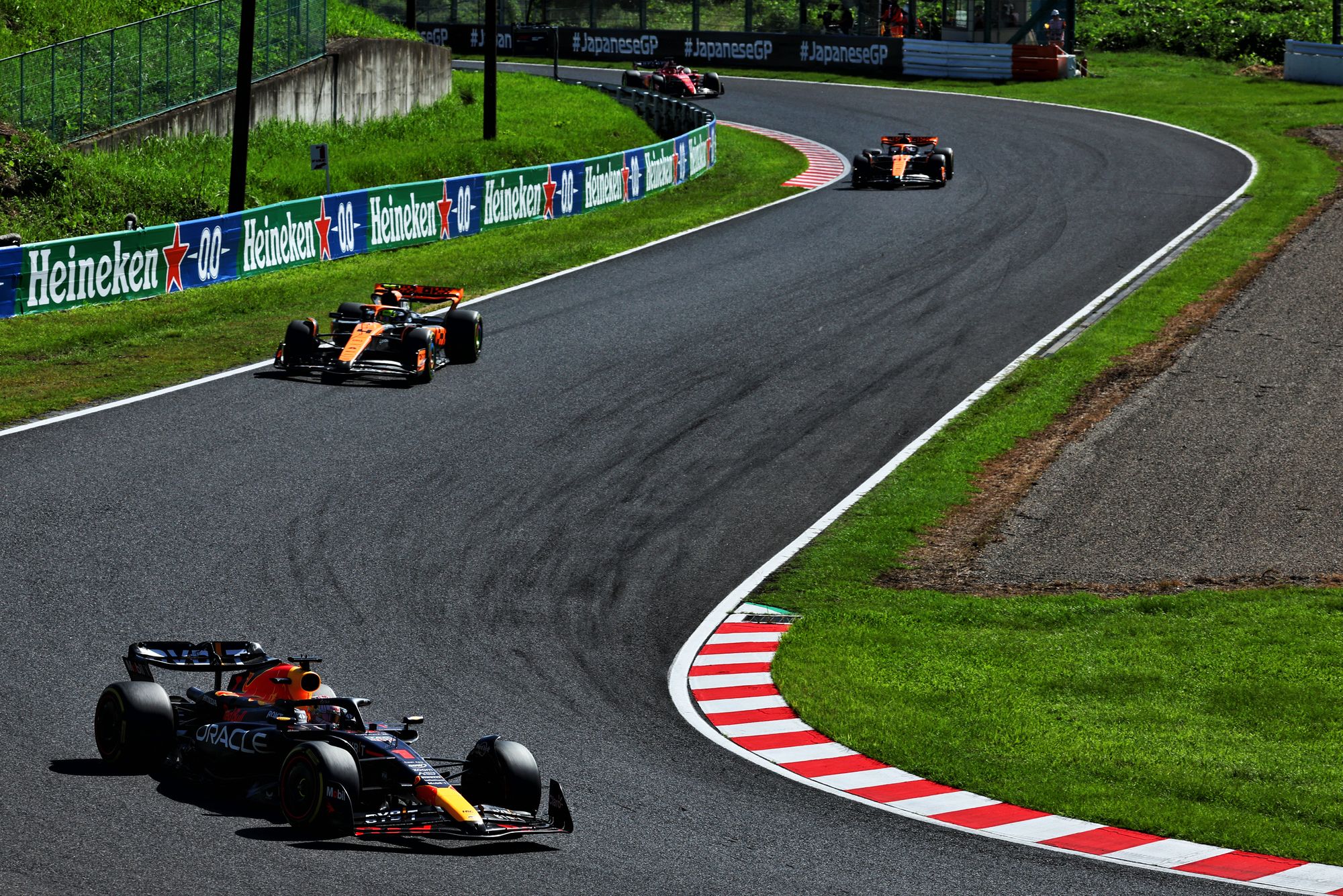
But whether F1 has actually reached it online audience 'peak' or not feels like a matter to be discussed in Formula One Management offices rather than on these pages. Instead, what I find more interesting is just how tempting it is for an outside observer right now to believe that this is the case.
It has to be, right? F1 is grinding through one of its least competitive seasons in memory, with the constructors' title having gone in Red Bull's favour with six races to spare, and the drivers' title overwhelmingly likely to be sealed by Verstappen during the upcoming Qatar Grand Prix weekend, almost certainly in the Saturday sprint.
Many wins have been by double-digit seconds, the overwhelming majority have been no-doubters. Singapore did emphatically end Red Bull's streak, and Monaco very well could've earlier in the season, but those are slim pickings.
None of this is to say that Red Bull's dominance in 2023 is somehow the least interesting, that it is meaningfully worse than some of the really one-sided early hybrid-era seasons for Mercedes or Ferrari's early-century beatdowns or past McLaren and Williams walkovers.
But it's longer than all of those, spanning 22 races (and that's with a couple of race cancellations) from the start of March to the end of November. It has taken so many pages and so many chapters to write no real main story, just a bunch of subplots.
You can have a season like this, but when you do, there should be a certain level of gratitude for when people continue to stick with the product despite the product being this.
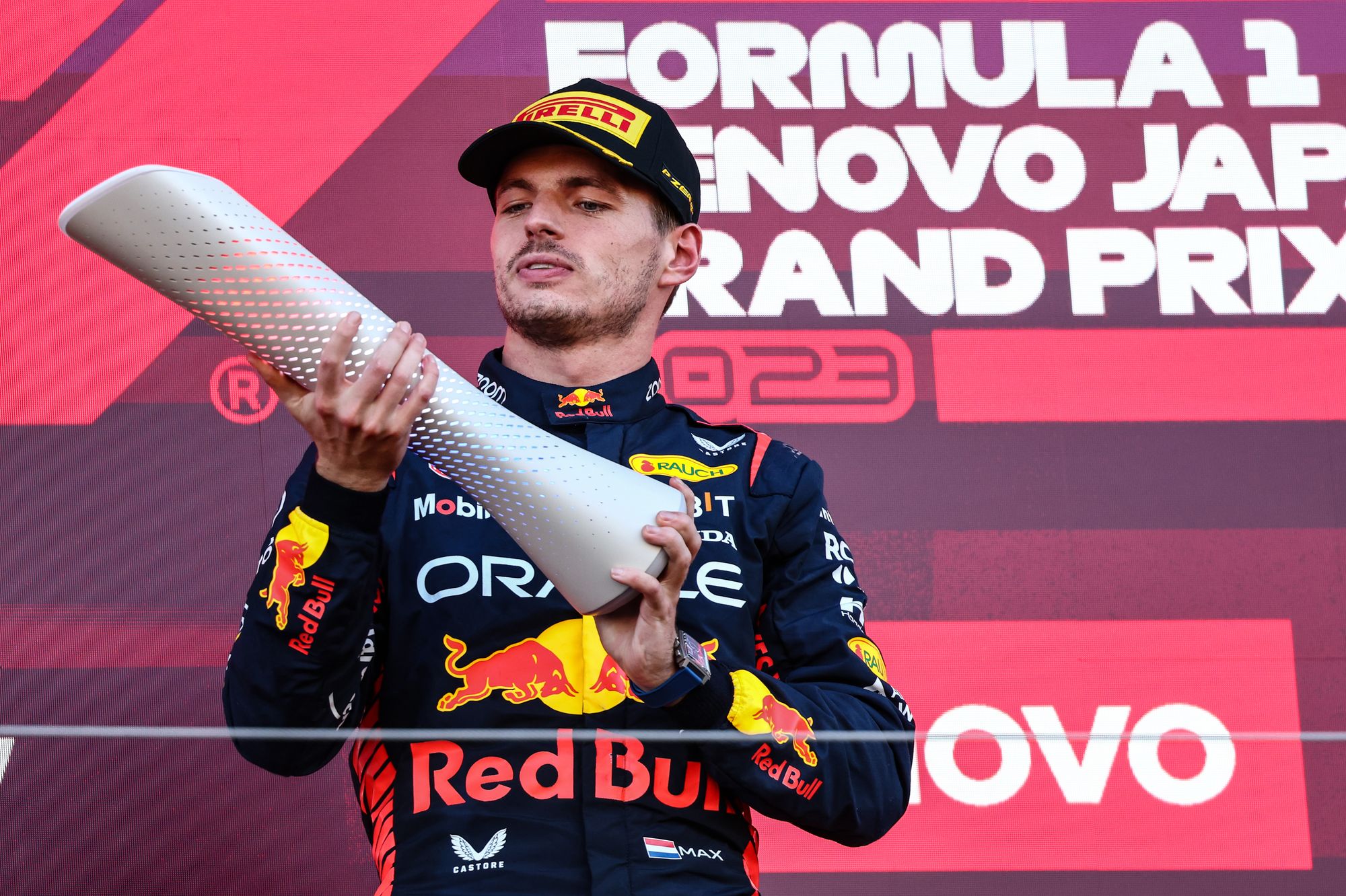
That gratitude certainly didn't come across in, say, Verstappen's comments at Suzuka.
"I don't think it's necessarily bad what was happening to Formula 1 because we were just better than everyone else," he said. "And if people can't appreciate that, then you're not a real fan."
The most charitable interpretation of Verstappen's comments is that they're a reflection of his annoyance at being made to feel like he's somehow the indirect culprit or even directly at fault for enjoying his time at the summit, after he'd gritted his teeth through some intrigue-free periods of Mercedes dominance. The second-most charitable interpretation is that he's just trolling.
But it does reflect a certain mindset - that F1 does not owe people a good race, and that 'real fans' will tune in anyway.
Yet the new young audience that F1 is so proud of - like Buzz Radar, I am not convinced it is a captive audience. I suspect it is an audience keenly aware of alternative options vying for what it is aware is limited, sometimes painfully so, free time. That might fly in the face of the perception that young people spend hours on their phones at a whim scrolling through social media feeds - but not when you consider those social media feeds are an alternative to F1 that has the potential to be more unpredictable and stimulating.
F1 feeling the heat would be good
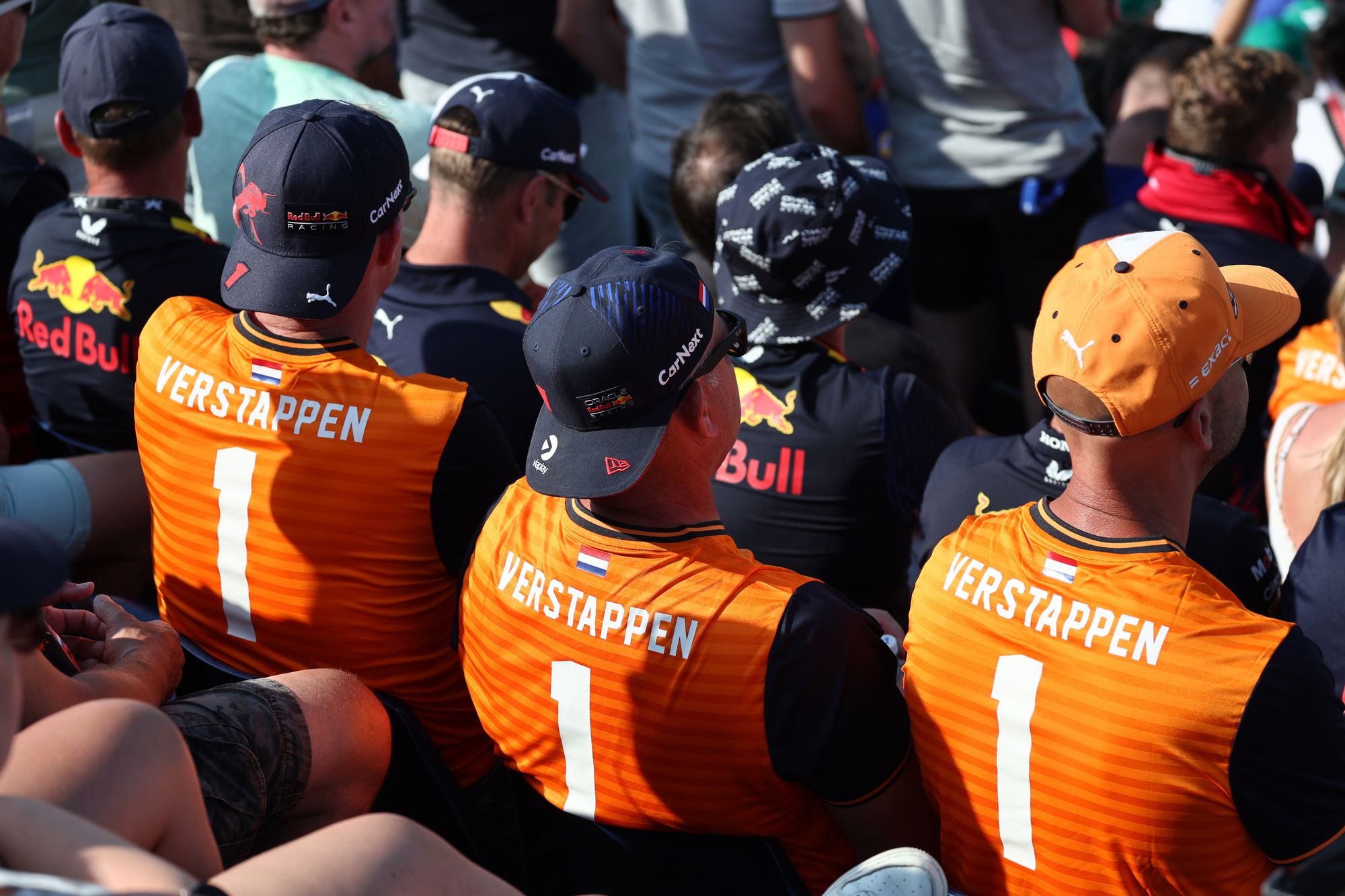
F1, of course, has used social media as a tool rather than a rival under its new ownership, and it has done so excellently, but a good on-track product has to the backbone, right?
Maybe. Honestly, I'm not entirely sure. And F1 sometimes seems in two minds, too. When CEO Stefano Domenicali routinely answers questions about Red Bull's dominance with the assertion that F1 can't and won't do anything to curtail it, it feels like F1 is counting on off-track and legacy appeal. But then F1 already has pro-competition measures in place - a cost cap, an Aerodynamic Testing Restrictions sliding scale - that it presumably sees as more palatably long-term rather than being an actual thumb on the scale.
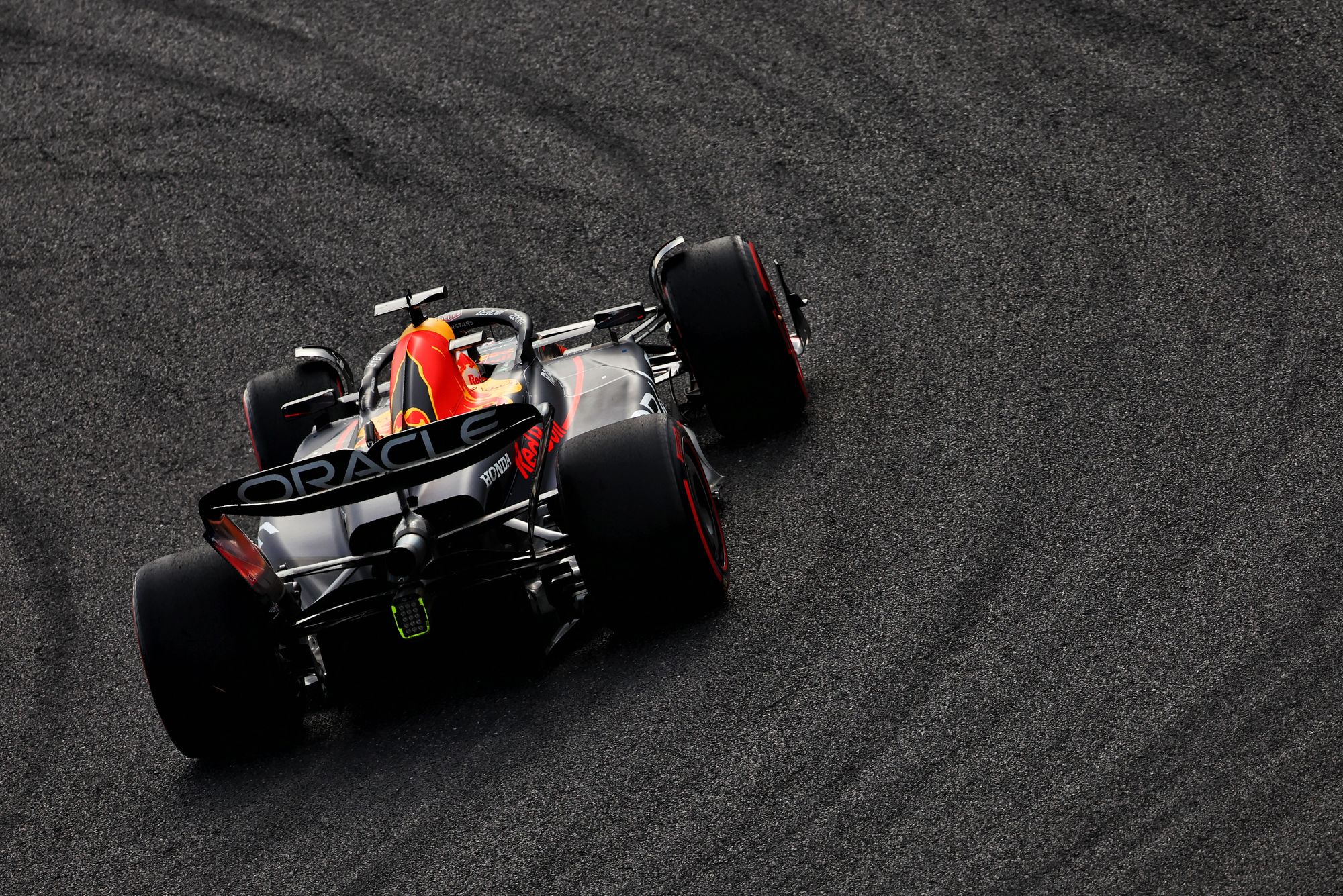
Maybe those measures - ATR in particular - need to be tightened, made stricter. Maybe there are other elegant ways of closing things up, like making more components spec. Sporting integrity, of course, is important, too, and the FIA would struggle to get away with short-term measures that are blatantly aimed at Red Bull.
But surely there's only so long that the instruction of 'Red Bull has simply done a better job, so appreciate it' can sustain itself, especially when some of F1's key players openly hint at a high possibility of Red Bull's dominance carrying through the final two years of the current regulations cycle, before a major rules reset potentially creates a new (or the same) dominant force?
"Hey, other sports not only put up with dominance just fine, but use it as a selling point," you may say, and you would be correct. But those sports are different. Some of them are tune-in-once-every-four-years (unless you're hardcore), some of them have playoffs that reliably generate drama even for clear favourites, some of them rely on the support of your local team, some of them live by "any given Sunday" - the understanding (as expressed in the NFL) that, even if a season is overwhelmingly likely to turn out a certain way, individual results are still highly volatile.
F1 does not really have an "any given Sunday" mantra in its current state, yet the number of race Sundays, so many boilerplate Sundays that feel the same as any other Sunday of that season, continues to rise. Which is, again, evidence that F1 has done an amazing job in making itself widely attractive, but is also an inevitable driver of burnout, especially when the season is like this.
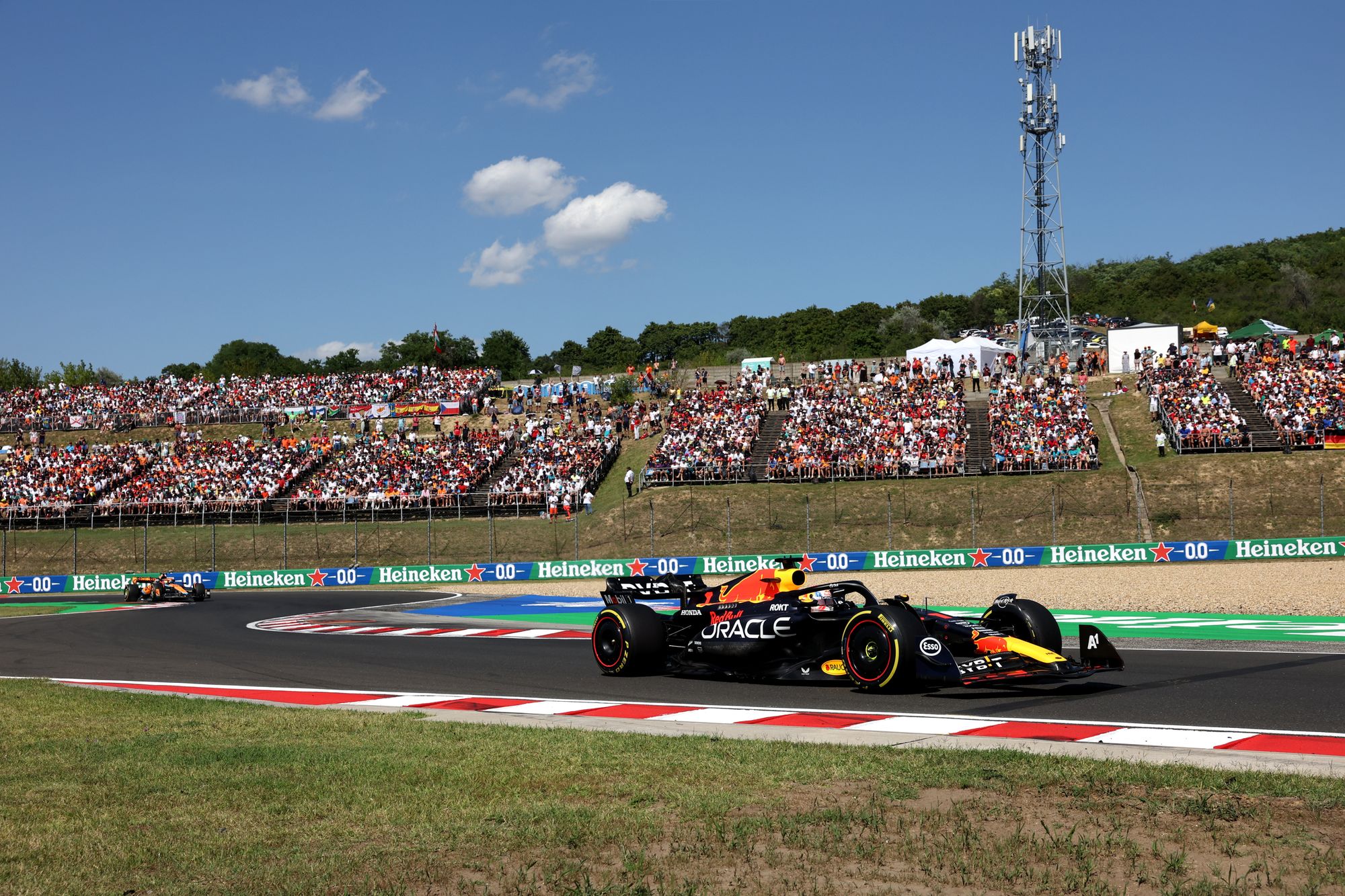
A year is such a long time. Two years, more so. If this were a TV show and there was a feeling that the next two series would be the same as the current one, it would not be renewed.
F1 will be 'renewed', of course, and thank goodness for that - despite all of the above, I love it a whole lot. But the idea of it recognising and feeling the effects of a certain drop-off is an appealing one for me, as I feel it is for many of the people who have welcomed the Buzz Radar conclusions.
Because maybe if F1 were to be feeling antsy about its engagement and reach, it would mean a more concerted public effort for it to come closer to the best possible version of a product that, even for the casual fan, is increasingly close to a 100-hour yearly commitment.
That's a lot of hours (for comparison, all of Breaking Bad is 62 hours) for a competition in which you sometimes, like all of us basically did in 2023, know the gist of the outcome with a high degree of certainty after 30 minutes.


